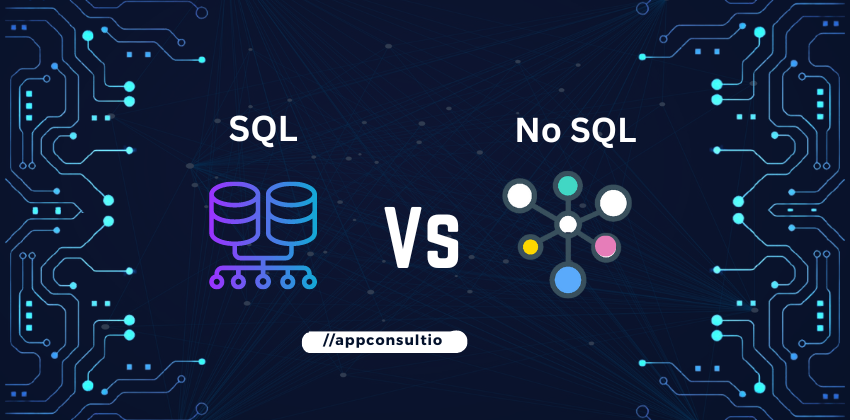
In modern data management, two prominent paradigms have emerged: SQL (Structured Query Language) databases and NoSQL (Not Only SQL) databases. Both these approaches cater to data storage and manipulation needs, offering distinct advantages and trade-offs.
SQL, which stands for Structured Query Language, was conceived as a standardized high-level interface for efficiently interacting with databases. It serves as a cornerstone for managing relational database management systems (RDBMS) through Data Definition Language (DDL) and Data Manipulation Language (DML) operations. Renowned relational databases such as MySQL, MS-SQL Server, and Oracle employ SQL as their querying language, facilitating robust data organization and retrieval.
In contrast, the NoSQL movement departs from the traditional relational model. NoSQL, or Not Only SQL, encompasses non-relational database management systems emphasizing scalability, performance, and flexibility. Leading NoSQL databases such as MongoDB, Cassandra, CouchDB, and HBase have gained traction, especially with the advent of "Big Data." Tech giants like Amazon, Google, and LinkedIn have propelled the innovation of NoSQL databases, refining their capabilities to handle massive datasets efficiently.
Divergent Architectures: When we look at SQL and NoSQL databases, we must recognize their distinct ways of organizing and handling data. SQL databases follow ACID rules, ensuring data is managed precisely and reliably. On the other hand, NoSQL databases aim for better performance by sometimes being more flexible with these rules. This can make them efficient for handling large amounts of data, but occasionally, data might need to be more perfectly consistent. Additionally, something called the CAP theorem comes into play, especially in distributed databases. According to CAP, it's challenging to provide all three things at once: consistency, availability, and the ability to handle network partitions. SQL databases usually focus on being consistent and available. In contrast, NoSQL databases often choose between consistency and the ability to handle partitions or prioritize availability and the ability to handle partitions.
In simpler terms, SQL databases ensure your data is always accurate, even if it might slow things down. On the other hand, NoSQL databases try to be super-fast and can handle vast amounts of data, but sometimes the data might need to be more perfectly organized. It's all about striking the right balance based on what kind of data and performance you need.
Performance Analysis: Evaluating how well SQL and NoSQL databases perform, researchers conducted tests to measure how fast they can read and write data. They found that NoSQL databases tended to be quicker at reading and writing than traditional SQL databases. Specifically, databases that use a key-value storage system, like Berkeley DB, were high-speed. These databases could be helpful in situations like online transactions, where you don't want to wait a long time. There was also something interesting with MySQL (a SQL database). At first, its writing speed was slower than MongoDB (a NoSQL database). But as they tested with more and more data, MySQL's speed improved. This suggests that there's more to figure out about why this happened.
Modern Considerations and Conclusion: In today's tech world, neither SQL nor NoSQL databases are always better – which one is best depends on the situation. SQL databases are good when you need to handle data in a structured way and want to be sure it's accurate. They're also good at growing with your needs. However, sometimes they might slow down because they focus a lot on accuracy.
NoSQL databases, on the other hand, are great when you want to quickly work with different types of data. They're flexible and fast for specific tasks. But they might only sometimes keep data perfectly organized and consistent because they don't follow strict rules like SQL databases. As technology progresses, one must consider what each database is good at when choosing one. SQL and NoSQL databases have their strengths and weaknesses, and they're used for different things. So, it's all about picking the right one for what you need.